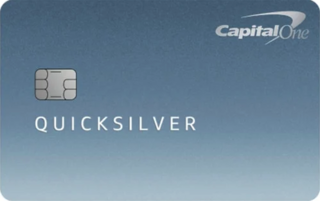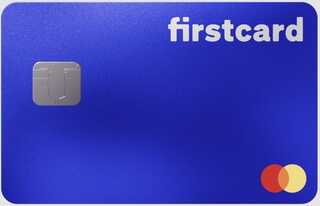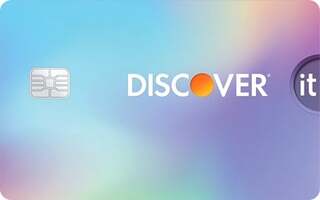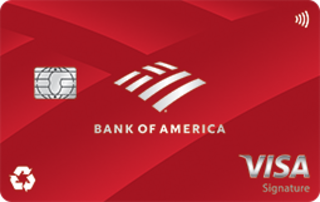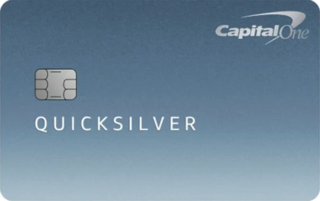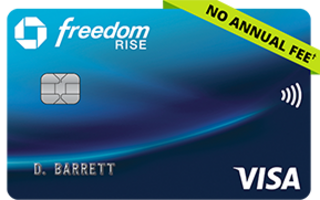Best Student Credit Cards of 2025
Money.com has partnered with CardRatings.com for our coverage of credit card products. Money and CardRatings may receive a commission from card issuers. This site does not include all card companies or all available card offers.
A student credit card can be a convenient financial tool to help you build your credit history and establish good debt management skills.
Student cards are typically easier to get approved for, even with no credit history. Sometimes the only requirement for approval is proof of enrollment at a college or university and a stable income. They also may offer a high rate of rewards for popular bonus categories like dining, gas and travel.
Read on for our list of the best student credit cards, their rewards and benefits and how to pick the best one for you.
Our Top Picks for Best Credit Cards for College Students 2025
- Discover it® Student Cash Back — Best Overall
- Bank of America® Customized Cash Rewards for Students — Best for Flexible Cash Back Categories
- Capital One Quicksilver Rewards for Students — Best for Unlimited Cash Back
- Bank of America® Travel Rewards Credit Card for Students — Best for Travel Rewards
- Chase Freedom Rise® — Best for Building Credit
Best Student Credit Cards Reviews
- No annual fee
- 5% cash back in quarterly rotating categories
- Redeem your rewards for cash back or through Amazon and PayPal
- No late fee on your first late payment
- Free Social Security number tracking
- 5% reward rate caps at $1,500 per quarter
Rewards:
- 5% cash back on quarterly rotating categories, like grocery stores, restaurants, gas stations, and more up to $1,500 per quarter (1% cash back thereafter)
- 1% cash back on all other qualifying purchases
Why we chose it: The Discover it® Student Cash Back earns an outstanding 5% cash back on popular rotating categories.
The categories offered by this card change every three months and may include grocery stores, restaurants, drugstores and more. Keep in mind that activation of bonus categories is required before each quarter begins. If you don’t activate the 5% categories, your purchases will only earn 1% cash back until the next quarter.
Other benefits include Discover® Identity Alerts, for daily monitoring of your Experian report and Social Security number. You also get an unlimited cash-back match at the end of your first year as a cardmember — so if you earn $100 in cash back from your purchases, Discover will double it for a total of $200.
All information about the Discover it® Student Cash Back Card has been collected independently by Money.com.
- Earn cash back on the spending category of your choice
- Change your preferred bonus category once per month
- Complimentary FICO score access
- $2,500 quarterly cap
Rewards:
- 3% cash back on a spending category you select each month (you can choose between gas, online shopping, dining, travel, drug stores or home improvement/furniture)
- 2% cash back at grocery stores and wholesale clubs
- 1% back on all other purchases
The 3% and 2% bonus rates are limited to $2,500 in combined purchases per quarter. After that, those purchases only earn 1% back.
Why we chose it: Most credit cards either have set bonus categories or quarterly rotating ones. The Bank of America® Customized Cash Rewards for Students, on the other hand, is the only student card that lets you pick your preferred bonus category and change it monthly.
The freedom to pick your bonus category each month can help you maximize your reward earnings throughout the year. For example, you could set gas as your preferred category in June if you’re planning a summer road trip or pick travel in April if you'll be booking a flight and hotel for spring break.
The card also provides some useful perks, including monthly FICO score updates, which can help you better understand your creditworthiness. Most cards offer the VantageScore, a credit score model that lenders don’t use as widely compared to FICO.
All information about Bank of America® Customized Cash Rewards for Students has been collected independently by Money.com
- No annual or foreign transaction fees
- 1.5% cash back on all qualifying purchases
- Lock your card in the Capital One Mobile app if it's lost or stolen
- Annual Fee
- $0
- Welcome Offer
- Earn $50 when you spend $100 in the first three months
- Regular APR
- 18.49% - 28.49% (Variable)
- Intro APR
- N/A
Rewards:
- 1.5% cash back rate on all qualifying purchases
- 5% back on hotels and rental cars booked through Capital One Travel
Why we chose it: The Capital One Quicksilver Student Cash Rewards Credit Card is an excellent cash-back credit card for everyday spending. It doesn’t have an annual fee, and awards 1.5% cash back rate on all qualifying purchases — one of the highest base reward rates among student cards.
Many cards without an annual fee offer high rates on bonus categories (like 3% back at restaurants or gas stations). However, they usually earn only 1% on general spending.
This card's 1.5% reward rate is unlimited, which means you'll get 1.5% back on all kinds of eligible purchases — from food, clothes, gas and more — without monthly caps. The Quicksilver Student Cash Rewards Credit Card also earns 5% back on hotels and rental cars booked through the Capital One Travel portal.
Also, the card includes travel accident insurance and doesn’t charge foreign transaction fees, making it a suitable option for use during international travel.
- No annual fee
- No foreign transaction fees
- Redeem your points for travel and dining purchases
- Points are worth 0.6 cents each when redeemed for cash back
- No travel or student-oriented benefits
Rewards:
- Unlimited 1.5x points for every dollar you spend on qualifying purchases
Why we chose it: The Bank of America® Travel Rewards Credit Card for Students is the only travel credit card geared for students who want to earn travel rewards.
The card has a simple earning structure that doesn’t require keeping track of bonus categories or spending caps. It also has flexible redemption options that allow you to use your points as statement credits to cover travel purchases, like flights, hotels, tourist attractions, rideshare services, parking, tolls and more.
The card doesn't charge any foreign transaction fees, which means you can use it while traveling abroad without incurring any extra charges.
However, this card doesn't offer benefits like travel accident insurance or 24-hour travel assistance services, while other non-travel student credit cards do.
All information about Bank of America® Travel Rewards Credit Card for Students has been collected independently by Money.com
- No annual fee
- Chase considers you for a credit limit increase after six months
- Includes trip cancellation insurance
- Foreign transaction fees
- No bonus categories
- Annual Fee
- $0
- Welcome Offer
- Earn a $25 statement credit after signing up for automatic payments within the first three months of opening your account. With automatic payments, just pick a date and dollar amount to make sure your credit card gets paid on time.
- Regular APR
- 25.99% Variable
- Intro APR
- N/A
Rewards:
- 1.5% cash back on all qualifying purchases
Why we chose it: With the Chase Freedom Rise®, you could be considered for a credit limit increase in as little as six months.
Many student credit cards don't offer a credit limit increase until you graduate or earn a higher income — and you have to contact the issuer yourself to request one. With this card, Chase will evaluate your payment history automatically six months after approval. If you’re not carrying a balance and are paying on time, you may qualify for an increase.
Getting a credit limit increase can help lower your credit utilization ratio, which measures how much of your available credit you’re using. Generally speaking, the lower your utilization ratio, the better for your credit score.
It's also worth mentioning that the Chase Freedom Rise® is one of the few no-annual-fee cards that includes trip cancellation insurance.
However, beyond its 1.5% flat cash-back rate, it doesn't offer any bonus categories. Also, it charges foreign transaction fees, so it's not ideal if you plan to study abroad or travel internationally.
Student Credit Cards FAQs
What is the best student credit card?
What is the minimum income for a student credit card?
Do you have to be a student to get a student credit card?
What kind of credit card should I get as a college student?
How We Chose the Best Student Credit Cards
We rate the best student cards first on low or no fees, as student credit cards often carry higher fees and APRs. We also consider sign-up bonuses and new promos for students as well as rewards and perks specific for student spending.
| Low or No Fees | Sign-Up Bonus | Student Rewards/ Perks | Other Card Benefits |
| 35% | 25% | 30% | 10% |
- Low or No Fees: $0 annual fees, minimal APRs, no foreign transaction fees, and no hidden charges.
- Sign-Up Bonus: Value of bonuses, including cashback or statement credits, and ease of achieving them.
- Student Rewards: Cashback or points for spending in categories relevant to students (e.g., groceries, dining, and streaming). Benefits like GPA rewards, credit monitoring, or streaming subscriptions are included.
- Other Card Benefits: Features like purchase protection, travel insurance, or tools to help build credit.
Read our full methodology here.
Summary of Money’s Best Student Credit Cards of 2025
- Discover it® Student Cash Back — Best Overall
- Bank of America® Customized Cash Rewards for Students — Best for Flexible Cash Back Categories
- Capital One Quicksilver Rewards for Students — Best for Unlimited Cash Back
- Bank of America® Travel Rewards Credit Card for Students — Best for Travel Rewards
- Chase Freedom Rise® — Best for Building Credit



